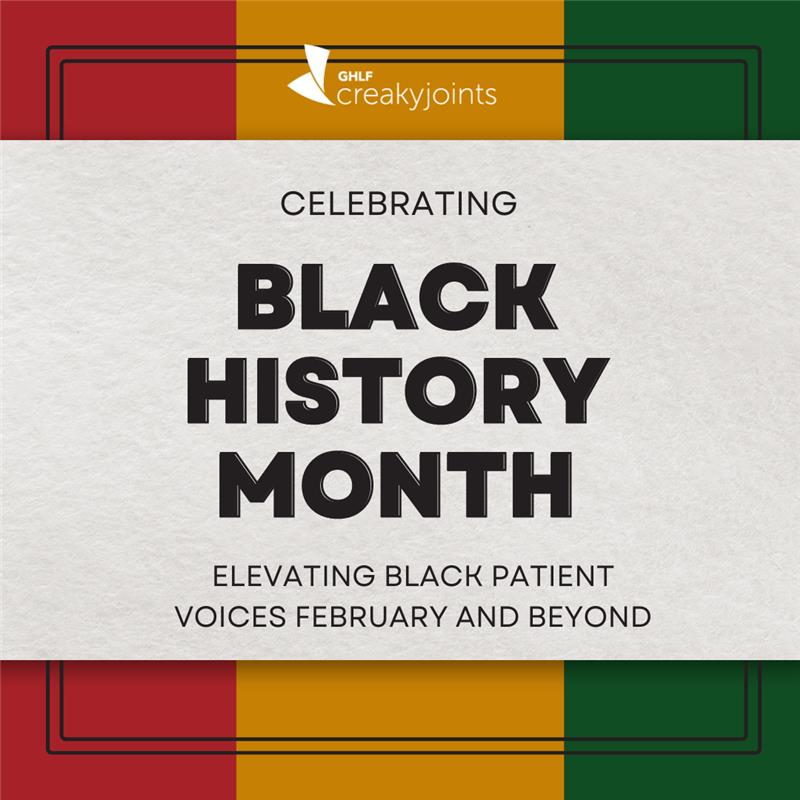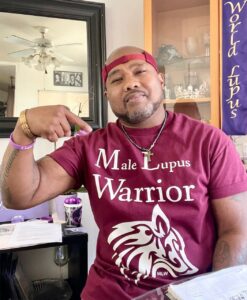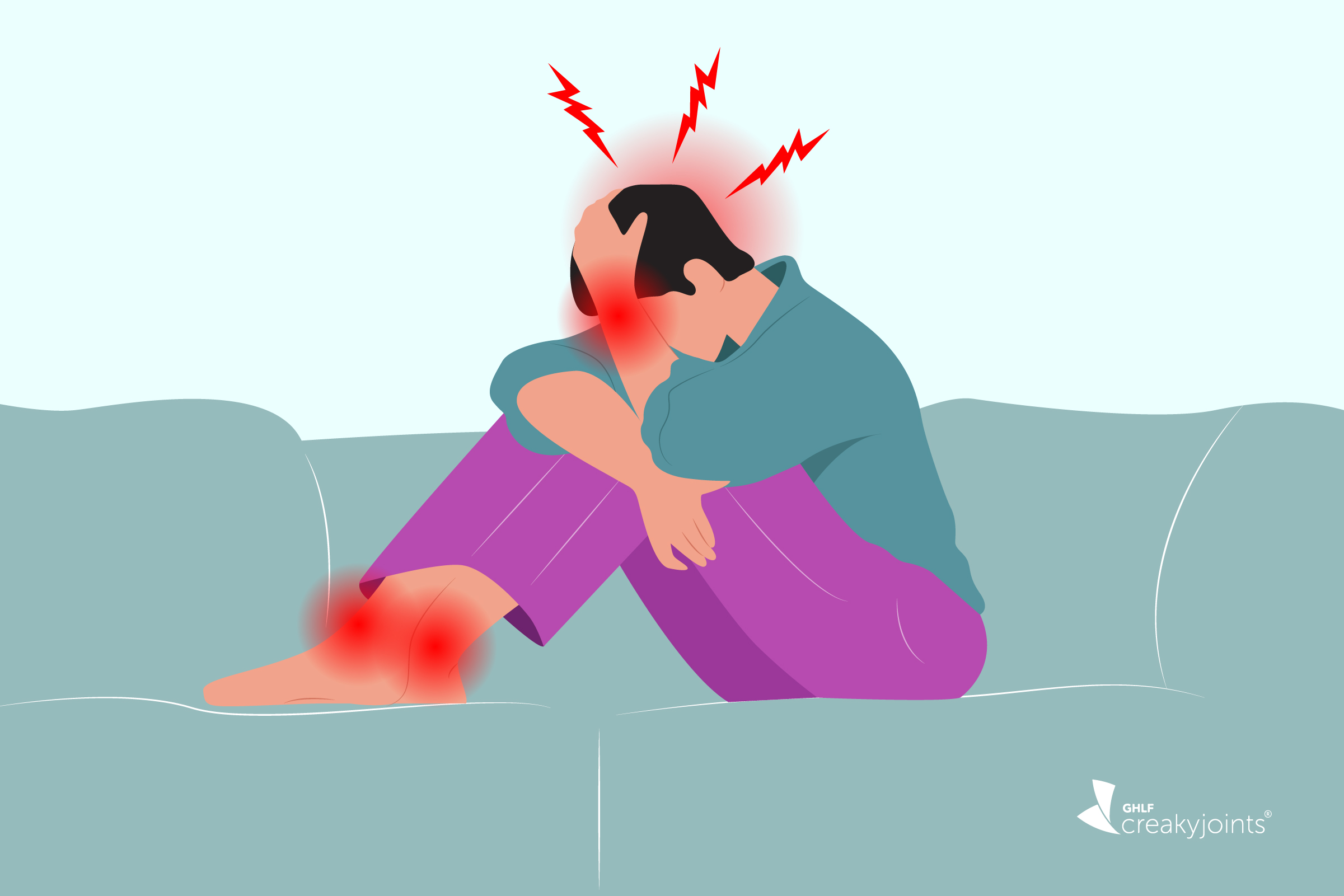We asked students with chronic illness what helped them in their journey.
Black History, Patient Voices: Advocating for Equity Beyond February
Black History, Patient Voices: Advocating for Equity Beyond February
“Black history is not confined to a single month; the same goes for health equity — it is a continuous narrative that should be woven into the fabric of our health care systems year-round.” — Michelle Walters-Johnson, patient advocate
February 7, 2024
Sarah Shaw

Hearing the Emmy acceptance speech by Queer Black actress Niecy Nash, during which she said “I wanna thank me — for believing in me and doing what they said I could not do,” struck a chord. Niecy then dedicated her award to all of the “Black and Brown women who have gone unheard yet overpoliced.”
It made me think about its relevance in public health, navigating health care systems, and patient advocacy for Black communities. In a system with racial health care disparities, implicit racial bias, and historic mistrust, the burden often falls on Black patients to advocate much harder for themselves. Niecy’s speech reminds us to center Black and Brown voices, challenge injustice, and work toward change in health care and patient advocacy spaces.
As a Black and Queer woman living with multiple chronic illnesses, including migraine and endometriosis, navigating the health care system hasn’t always been easy. I, like so many others, experienced racism in doctors’ offices from a very young age, and it pushed me away from going back to the doctor until my mid-20s, when my migraine and endometriosis attacks got significantly worse.
I had to hop from doctor to doctor until I found a place where my pain was taken seriously, and where I didn’t have to deal with microaggressions and racism. Through these experiences, I learned that I had to advocate hard for my health, as well as educate myself on the ins and outs of my disease. Sadly, my situation is not uncommon for millions of Black and Brown people living with chronic illnesses.
During Black History Month, it’s important to recognize ongoing health care disparities and the need for collective action. Black History is more than a month; it should influence our approach to patient care year-round. Niecy’s words, “I wanna thank me,” serve as a reminder of the challenges Black individuals face, from breaking glass ceilings to accessing proper health care. I hope we can keep improving health outcomes together so that the burden isn’t solely on those most affected.
We turned to our patient leaders in the Black community for their insights on representation and health equity. We encourage you to read their words and reflect on how we can apply their knowledge to create a more equitable future for all patients.
Here’s what they had to say.

Tien Sydnor-Campbell, Osteoporosis, Osteoarthritis, and Rheumatoid Arthritis
What is one step that needs to be taken to enhance equity and inclusivity for Black individuals living with chronic illness?
“With 25+ years in health care as a medical massage therapist and body-centered psychotherapist, my ability to understand health information, navigate health services, and make informed treatment decisions is far from perfect.
My experience allows me to break through some communication barriers with providers that don’t fully explain why they are making certain treatment decisions because they either don’t expect my questions or are impressed with my level of questions. It also provides me with the autonomy to fully engage in self-care for chronic disease management.
One step that would improve equity and inclusivity would be to improve communication with Black patients. It could be something as simple as peer-coaching, support groups, or learning pods for newly discovered information on treatments. The American Healthcare System has not been a trusted source of information after many decades of poor treatment, neglect, and outright racism, but it could be improved by demonstrating care and appreciation for those suffering.
Another step that is shorter could be the inclusion of statistics of the effects of medications on Black people. We have not been a part of many clinical trials and it is important for us to be asked to participate so that information can be shared. Recruiting Black people with a history of managing a chronic illness would demonstrate effectiveness and safety if it is known that Black patients were included in the science.”
Why is advocacy important in the Black community?
“My work as a patient advocate is vital to improving treatment and the lived experience of those suffering. Many Black people choose not to be vocal about their chronic illness and how difficult it can be. I have been asked, as a patient advocate, to give insight into my experience to news programs, newspapers, and several pharmaceutical companies over the past 12 years. I am often the only Black voice in the room and there has only been a handful of times where there were more than two of us in the room.
Advocacy allows the very important voice of the patient to the table in places like the FDA or in meetings with scientists trying to design a new medication for your particular health issue. If our voices are not in the room, it feels like we have been shut out of meaningful dialogue that we know helps in the long run. Patients are the heart of the health care system. Without patients there would be nothing for anyone to do.”
Read more about Tien’s disease journey and how she learned to make friends with her pain.

Emmitt Henderson III, Systemic Lupus and Lupus Nephritis
What is one step that needs to be taken to enhance equity and inclusivity for Black individuals living with chronic illness?
“To enhance equity and exclusivity, it starts with the Black community routinely going to the doctors for physical exams. There’s a history of people only going to the doctor when symptoms occur or in a serious situation. For this to happen, there must be easier ways to get medical care, lower medication copays, and education on conditions they’re diagnosed with.
Once this is established, the statistics on chronic illnesses will change. I believe the results will be earlier chronic illness diagnosis, a higher percentage of diagnosis in Black and Hispanic communities, and a diagnosis at lower age levels.”
Why is advocacy important in the Black community?
“Patient advocacy is very important, especially for Black advocates. When educating others from experience, they are more likely to be taken seriously, and their advocacy will be heard by folks with more in common with themselves. The Black community needs to have more self-awareness and practice more self-care. Another reason why patient advocacy is important is because African Americans experience high rates of poor health and are diagnosed with chronic health conditions.”

Diane Talbert, Psoriasis and Psoriatic Arthritis
What is one step that needs to be taken to enhance equity and inclusivity for Black individuals living with chronic illness?
“We need to better educate on the importance of mental and behavioral health issues. I believe this is something that we have overlooked for years and are still overlooking it. We somehow have to get past the mistrust of our health care system. We need Black people to engage more to improve our health care.
I understand where this comes from. When you have the system telling you that you are not truthful or if you are in pain and they tell you it’s all in your head, this is why we mistrust the health care system. We have to get by being stigmatized and blatant racism. We have come a long way but we still have a ways to go.”
Why is advocacy important in the Black community?
“I recently attended a conference for chronic illness patients, and I was the only Black woman there. It should never be like this. As Black people, we need to provide support to not only the patients but also to our families as well. We need to try to prevent things that can happen with medical errors and educate each other. There are so many times that we are dismissed and ignored.
Sometimes, the only support people get is from advocates. We must bring change and let our people know they are not alone. They might not have a voice, but being a patient advocate, you can let your voice be heard. We can help people share their thoughts and concerns. We deserve a diagnosis.”
Listen to Diane talk about her journey with psoriasis and psoriatic arthritis on GHLF’s podcast “The Psoriatic Arthritis Club.”

Chantelle Marcial, Rheumatoid Arthritis and Migraine
What is one step that needs to be taken to enhance equity and inclusivity for Black individuals living with chronic illness?
“A focus on recruiting, hiring, and elevating Black medical professionals in all areas. Representation is the baseline way to start to even the playing field. As an aside, starting as young as elementary school, showing young Black kids that a career in health care is open to them and a viable path. Getting them interested in science, medicine, and mental health care from a young age so that in future generations, this is not even a conversation we have to have.” [Note: According to the Association of American Medical Colleges, only 5.7% of U.S. doctors are Black.]
Why is advocacy important in the Black community?
“Advocacy is important because of the cultural stigma we have toward the medical field. So many people think that no matter what, there will be some form of mistreatment when they approach any medical appointment/situation. Also, from my experience with family, some believe it’s their “lot in life” to suffer, so they avoid seeking care. Having an advocate to encourage folks to go to the doctor, seek regular health care, and adopt best practices for their health maintenance is so important for our community.”
Read how Chantelle used her cooking skills to bring support to the chronic illness community during COVID.

LaDream Bradley, Sickle Cell Disease
What is one step that needs to be taken to enhance equity and inclusivity for Black individuals living with chronic illness?
“One step that needs to be taken into consideration is to build empathy and an understanding of what Black individuals have to go through when dealing with a chronic illness. Another step would be to stop racism and criticism on how they judge sickle cell patients based on our vitals, labs, hemoglobin levels. etc.”
Why is advocacy important in the Black community?
“Patient advocacy is important because sometimes we need our advocates to help fight for us so medical workers can know what we go through. Also, to mitigate mistrust and discrimination in medical settings and to offer accurate, detailed information about their symptoms.”

Michelle Walters-Johnson, Alopecia
What is one step that needs to be taken to enhance equity and inclusivity for Black individuals living with chronic illness?
“Patient advocacy is important in the Black community because the Black community has a history of facing imbalance in health care, including access to quality care and unfair and unequal treatment. It is a known fact that the Black community is subject to systematic obstacles to information, quality foods, and jobs, which, as a result, limits opportunities such as adequate health care.”
Why is advocacy important in the Black community?
“One step that needs to be taken to enhance equity and inclusivity for Black individuals living with chronic illness is cultural competence. Cultural competence is “the ability of an individual to understand and respect values, attitudes, beliefs and more that differ across cultures, and to consider and respond appropriately to these differences in planning, implementing, and evaluating health education and promotion programs and interventions.
Health care providers and systems should invest in training and education programs that enhance cultural competence among health care professionals; this would allow them to better understand the unique cultural factors that may influence the health, mindset, and behaviors in the Black community.
The voices of our patient leaders resonate with a plea for inclusivity, understanding, and concerted efforts to create a more equitable future for all patients. Black history is not confined to a single month; the same goes for health equity — it is a continuous narrative that should be woven into the fabric of our healthcare systems year-round.”
Read how Michelle “beat” alopecia by changing her perspective and influencing other patients along the way.
Get Involved with Patient Advocacy
Here are several ways you can get more involved with patient advocacy at GHLF.
50-State Network
The 50-State Network is the grassroots advocacy arm of CreakyJoints and the Global Healthy Living Foundation comprised of patients with chronic illness who are trained as health care activists to proactively connect with local, state, and federal health policy stakeholders to share their perspective and influence change. Join our network to effect change and make health care more affordable and accessible to patients with chronic illness.
PatientSpot
PatientSpot (formerly ArthritisPower) is a patient-led, patient-centered research registry for people living with chronic conditions. You can participate in voluntary research studies about your health conditions and use the app to track your symptoms, disease activity, and medications — and share with your doctor. Learn more and sign up here.
The ChronicHue Community
ChronicHue is a monthly virtual community empowering melanated folx living with chronic illnesses and disabilities. ChronicHue aims to connect Black, Indigenous, and People of Color/People of the Global Majority together in a space created for us, by us. In these virtual spaces BIPOC patients can have honest and open discussions away from microaggressions, racism and systemic biases often encountered in chronic illnesses spaces. Sign up to receive monthly notifications about ChronicHue meetings.
Source:
Boyle, P. Do Black patients fare better with Black Patients? Association of American Medical Association. June 2023. https://www.aamc.org/news/do-black-patients-fare-better-black-doctors.
SUBSCRIBE TO GHLF
RELATED POST AND PAGES
_
Was this article helpful?
YesNo







